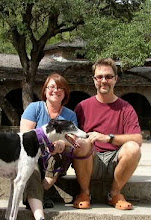
President Obama stated on October 11, 2009 “We should not be punishing patriotic Americans who have stepped forward to serve this country. I’m working with the Pentagon, its leadership and the members of the House and Senate on ending this policy, legislation that has been introduced in the House to make this happen, I will end ‘don’t ask, don’t tell.’(DADT) That’s my commitment to you.”
Defense Secretary Robert Gates announced new measures on March 25, 2010, that would make it difficult to discharge openly gay men and lesbians. New guidelines for the dismissal of an enlisted person who violates the ban must be approved by an officer that is a one-star general or higher and testimony provided by third parties are given under oath. The goal is to make the law more fair and consistent. “These changes reflect some of the insights we have gained over 17 years of implementing the current law, including a need for consistent oversight and clear standards,” Gates said.
Even Dick Cheney in an interview on This Week said “I’m reluctant to second-guess the military in this regard. When the chiefs come forward and say, ‘We think we can do it,’ then it strikes me that it’s - it’s time to reconsider the policy.”
So I wonder if President Barack Hussein Obama (craaaaazy radical liberal) to Dick Cheney (ehem) are saying repeal this law, what’s the problem? What are the arguments against allowing openly gay men and women serve in the military?
One concern I’ve found has to do with what proponents for DADT call Logistics citing imagined scenarios between bunk mates. Marine Corps Commandant General James Conway stated “I would not ask our Marines to live with someone that’s homosexual if we can possibly avoid it.” This argument does not follow logic. Gay men and women are currently sharing rooms with straight service people. No one gets to request a room change now just because they aren’t getting along with their bunk mate.
Another fear in conservative military groups is that gays will make unwelcome advances towards their peers. That their behavior is unpredictable and promiscuous. However this argument is unfounded as well. Sexual harassment is not allowed regardless of gender.
There is also concern that allowing gays to serve openly will undermine the military, making them weak.The tension and anxiety would be detrimental to teamwork. But this was the same argument against integration. Columnist David Wood writes it’s been 16 years since he has even heard and argument about homosexuals serving. One Marine quoted “If you’re a woman or a gay or a Martian, you gotta meet the standards. Otherwise go do something else.”
A legitimate argument is aggression against homosexuals within the military, whether it is a case of retaliation as in the discharge of Lacye Presley and Holly Thompson profiled on CBS News or simple violence against those even suspected of homosexual conduct. Each of the arguments against repealing DADT stems from fear. Homophobia is a serious issue in the military and should be address through education and discipline.
We can even look to other countries to see that allowing homosexuals in the military is not detrimental. Of the twenty-six nations that are included in the NATO military, more than twenty allow homosexuals to serve. Countries that allow homosexuals to serve in the military include Argentina, Australia, Austria, Belgium, Bermuda, Brazil, Canada, Czech Republic, Denmark, Finland, France, Germany, Ireland, Italy, New Zealand, Norway, Romania, Russia, South Africa, Spain, Sweden, Switzerland, and the United Kingdom. All nations I think we would want to count as allies. Countries that disallow homosexuals to serve include Cuba, China, Iran, North Korea, Pakistan, Saudi Arabia, Serbia and Syria, all countries that have questionable human rights issues.
It is widely accepted that people have few basic needs, food, shelter, safety and affection. I feel it is not only fair but a right that the people that choose to protect our basic needs should be able to pursue them as well. There is no factual reason to maintain Don't Ask, Don't Tell. There are currently about 66,000 gays serving in our armed forces. Allowing them to serve openly is the first step of many to begin treating them with the honor they deserve.

No comments:
Post a Comment